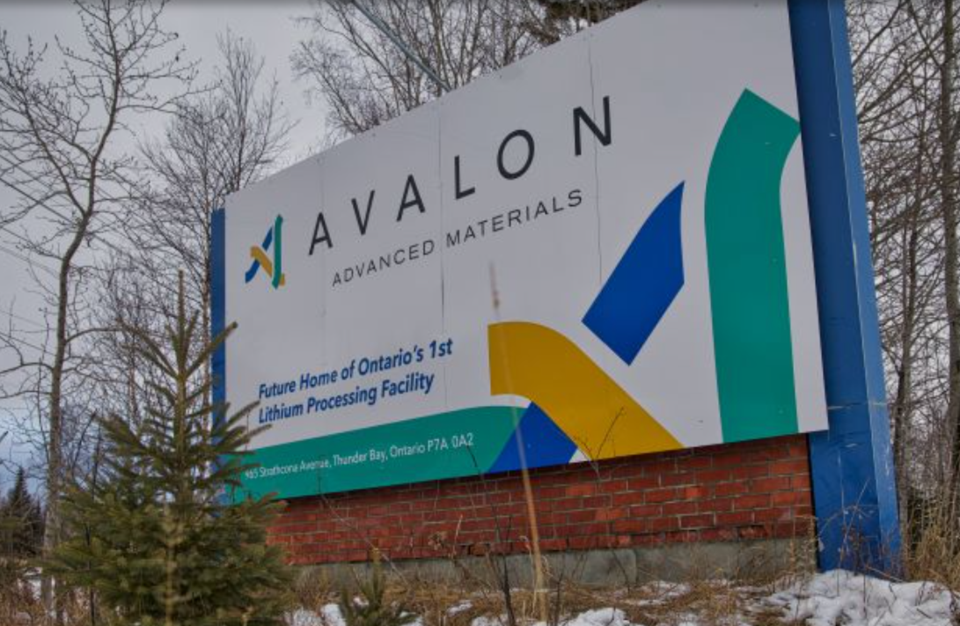Avalon Advanced Materials has started a preliminary economic assessment (PEA) of its proposed Thunder Bay lithium refinery.
The Toronto company said in a news release that DRA Americas, an internationally known engineering firm, is the lead consultant tasked with pulling the PEA together.
The PEA is part of a series of economic and technical analyses that will inform Avalon’s decision to construct the facility. Avalon secured $15 million from a New York fund manager in March to do the study.
Last June, Avalon purchased a 383-acre waterfront brownfield property on Strathcona Avenue in Thunder Bay’s north end. The company previously tossed out the figure of $1.1 billion to build the plant.
The feed for the plant would come from Avalon’s yet-to-be-developed Separation Rapids deposit, north of Kenora. But the company said the PEA will also explore setting up the refinery as a processing hub, taking in lithium concentrate from other potential miners in the area.
The refinery would convert lithium concentrate into a lithium hydroxide product that is coveted by battery manufacturers in the electric vehicle sector.
In the release, Avalon said it's counting on producing an estimated 30,000 tonnes a year of lithium hydroxide over a 20-year span, equal to the estimated mine life at Separation Rapids.
The facility is also being designed to produce a lithium carbonate product, which is used in rechargeable batteries, specialty ceramic and high-strength glass production, and in curing cement and adhesives.
The technology incorporated into this facility will be supplied by Metso, a Finnish company that’s regarded as a world leader in environmentally friendly mineral processing.
“The forecasted battery manufacturing capacity is expected to increase over the coming years as world EV and battery utilization becomes more mainstream,” said Scott Monteith, Avalon’s CEO, in a statement.
“The decision to pursue production of battery grade lithium hydroxide and lithium carbonate is driven by continued strength in lithium battery demand and North American supply chain needs for high quality product produced in North America.”
Avalon has said it expects the combined number of jobs for both the mine and the refinery to be in the neighbourhood of 500 positions. The company said last December it was aiming for a 2028 refinery startup.
Separation Rapids, located 70 kilometres north of Kenora, is a rare pegmatite deposit enriched in lithium minerals, namely petalite and lepidolite.
Petalite is used to make high-strength glass and as a high-purity feed to make battery-grade lithium hydroxide or carbonate. Lepidolite concentrate is also used for production of battery grade lithium carbonate.
The mine project would be carved out as an open-pit, quarry-type operation. The deposit contains measured and indicated resource of 10.08 million tonnes of lithium oxide, averaging 1.35 per cent.
Avalon is part of an exclusive club of four lithium developers with mineable deposits in northwestern Ontario.
Three of the four have identified locations for their respective lithium processing plants. Green Tech Metals will be Avalon’s neighbour in Thunder Bay. Rock Tech Lithium has selected Red Rock. Only Frontier Lithium is being coy on its plans, except to say its conversion plant will located somewhere in Northern Ontario.
Northern Ontario Business
